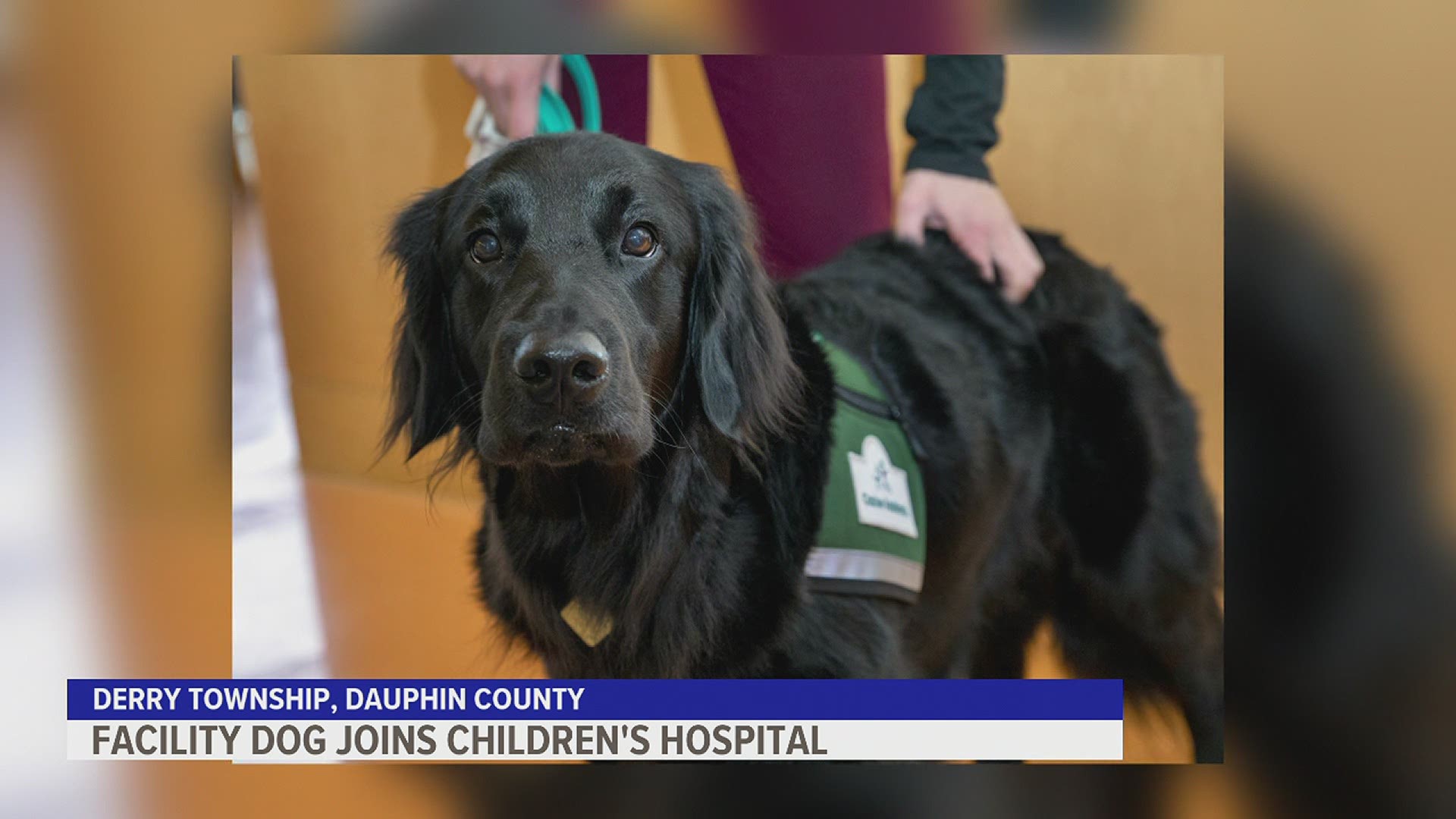HERSHEY, Pa. — A new provider has joined the region’s only children’s hospital.
Pilot, a black golden retriever, is joining a growing pack of facility dogs at Penn State Children's Hospital in Hershey.
Working with Stacy Gloudemans, a certified child life specialist and his primary handler, Pilot will spend most of his time tending to patients in the Pediatric Surgical Care Unit and the Pediatric Intensive Care Unit, the hospital said in a press release.
Jenn Shearn, a child life assistant, and certified child life specialist Joan McGeary will serve as Pilot's secondary handlers, the hospital said.
Pilot was raised and trained by Canine Assistants in Georgia, where he learned skills unique to working with kids at a children's hospital, such as how to navigate hallways when walking next to wheelchairs and IV poles and gently resting next to a child who has experienced an injury, such as an amputation.
Gloudemans, Shearn and McGeary traveled to Georgia last month to meet Pilot and learned how to integrate Pilot into their daily child life interventions and programming while maintaining a safe environment of care, according to the hospital.
”We are grateful to add Pilot to our team and think he will be a perfect fit in meeting the unique needs of patients, families, and staff in the PICU and Pediatric Surgical Care Unit,” Gloudemans said.
In 2016, Penn State Children’s Hospital became the first children’s hospital in Pennsylvania to establish a facility dog program when Kaia, a golden retriever, started on the job. Becky, another golden retriever, joined the program in 2018, the hospital said.
The facility dogs are full-time employees of the Children’s Hospital and spend 40 hours on the job each week with their primary handlers, with time allowed for downtime, naps and walks. The dogs also live with their primary handlers, according to the hospital.
"These dogs can really help provide that sense of calmness and hopefully take away some of the anxiety that's related to some of these medical experiences that people have when they're here," Gloudemans said.
Facility dogs are carefully and responsibly bred and raised based upon several qualities and characteristics. The organization where the facility dog was trained also adopts dogs from local shelter and rescue organizations on occasion. The facility dogs are trained using the bond-based choice teaching approach. Facility dogs are trained for the first 14-24 months of their lives before being placed with facilities such as children’s hospitals.
Kaia spends the majority of her time supporting young patients in radiology and radiation oncology. Becky's main duties are to help lower stress, provide diversion during tests and procedures and bring comfort to pediatric patients, families and staff in the pediatric hematology/oncology unit, the Pediatric Intermediate Care Unit, and Pediatric Acute Care Unit.
The facility dog program is separate from the Pet Therapy Program, which continues to have an important presence in both the Children's Hospital and adult hospital. The two programs have different kinds of training and help patients in different ways. Facility dogs get extensive training to work in a health care environment and learn specific tasks to help children cope with major and minor hospital procedures. Pet therapy dogs offer companionship, as well as a calming and therapeutic influence for patients.
The facility dog program is made possible by the generosity of donors to Penn State Children’s Hospital.
If your child is visiting the children's hospital, you can see Pilot Monday through Friday from 7:30 a.m. until 4 p.m.

